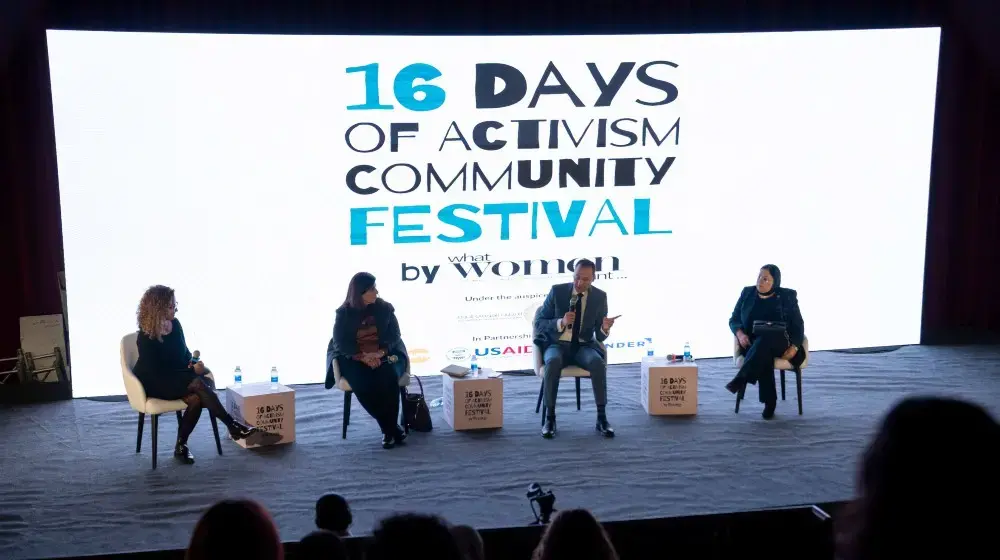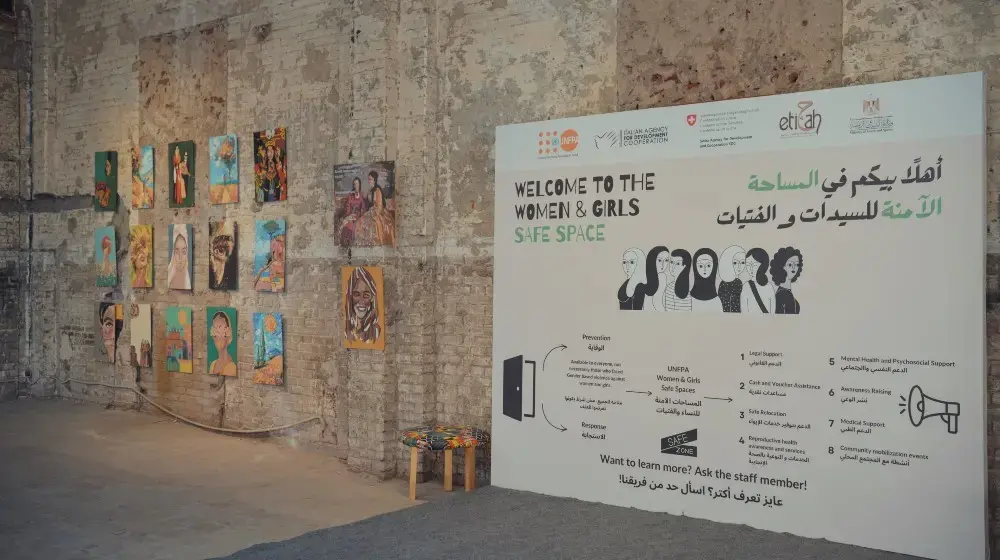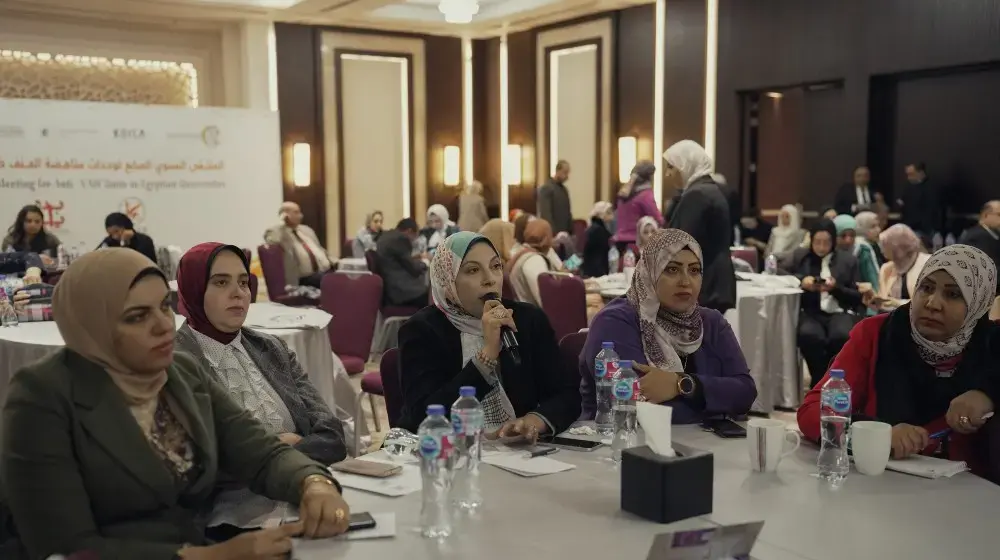Rama Alkaddour’s closet is filled with scraps, knick-knacks and random used items. In her household, nothing goes to waste.
“I store various items until I come up with ideas to reuse them,” she says.
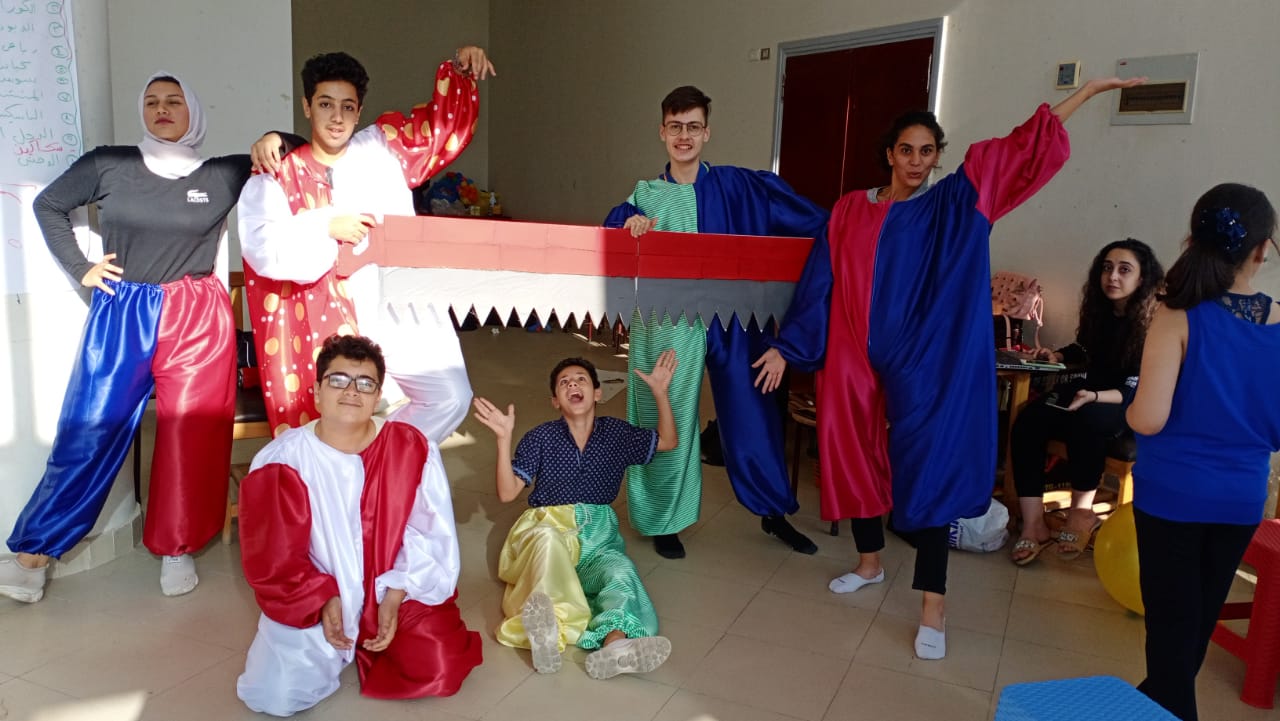
The Syrian national is a regular patron of the UNFPA-operated Safe Spaces, where she started attending awareness-raising workshops and acquired handicraft among other skills at the age of 15.
Now at 19, Rama volunteers at the Safe Space in the governorate of Sharqeya, and contributes to developing scripts and building sets for community theatre performances tackling different issues such as gender-based violence and early marriage.
Using their handicraft skills and making the best out of the available resources, Rama and the other volunteers build the entire theatre set from recycled material.
“We starting using the water bottles we drank from during rehearsals, as well as the boxes that carried them, among other material,” she explains, “we just look at material and think about how we can make it look nice.”
Rama says the end result is the collaboration of volunteers of different ages, who come together to color and assemble the set.
UNFPA operates 10 Safe Spaces in seven governorates, designed for women and girls where they can access reproductive health services and gender-based violence response services – including psychosocial, legal, and medical. The Safe Spaces also offer a haven for creating social networks, and receive social support. They also host recreational and vocational activities.
UNFPA employs edutainment techniques to raise awareness around population issues, such as music and theatre.
Rama and other volunteers at the Safe Spaces assemble the sets’ backdrops from painted cardboard boxes, sew and embroider costumes from plastic bags and create decorative framings from discarded metal pipes.
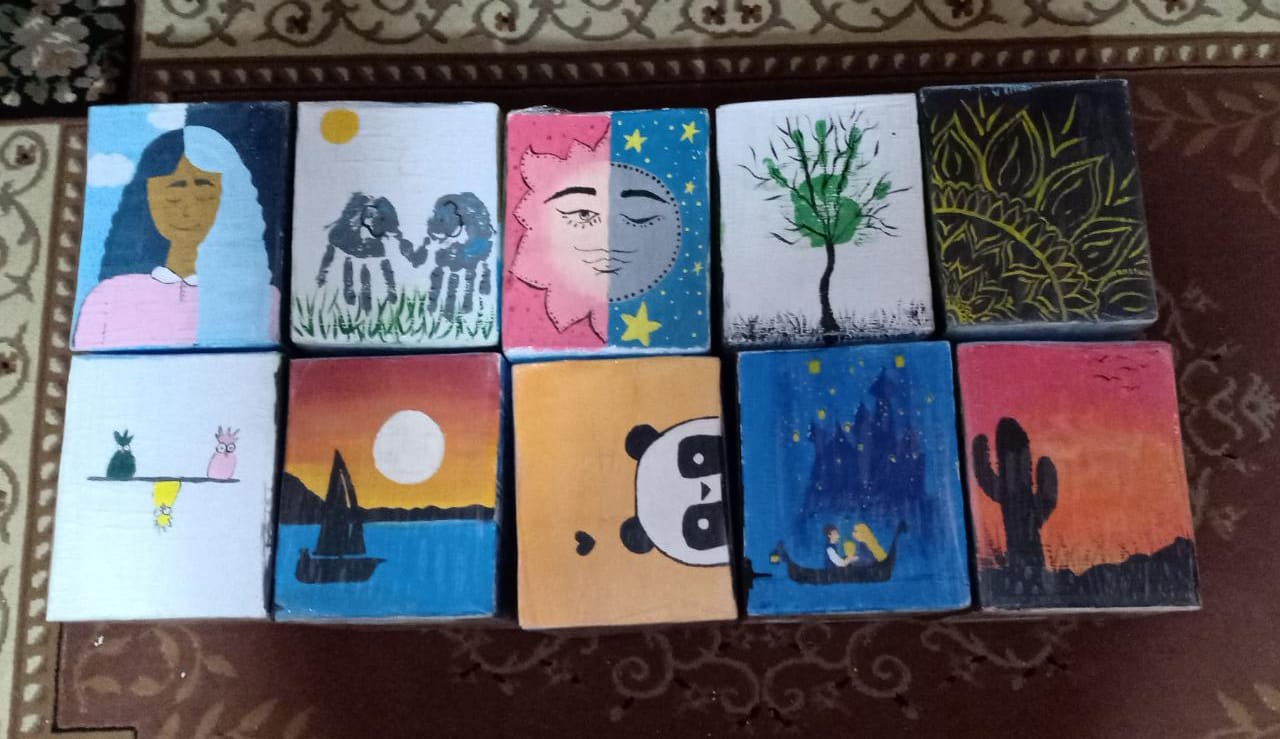
The volunteers, she says, even collect discarded items from their homes and bring them to the Safe Spaces to be used as theatre props.
Rama says her creations are not strictly limited to theatre sets and props, some of the items she creates from discarded material are used for decorative purposes around the Safe Spaces.
Some of these decorative items are miniature versions of the theatre set made out of plastic water bottle caps, foam and wooden scraps.
She even took her craft further and started fashioning gifts for her friends at the Safe Spaces and the children of her community.
“The Safe Spaces really changed me,” she says.
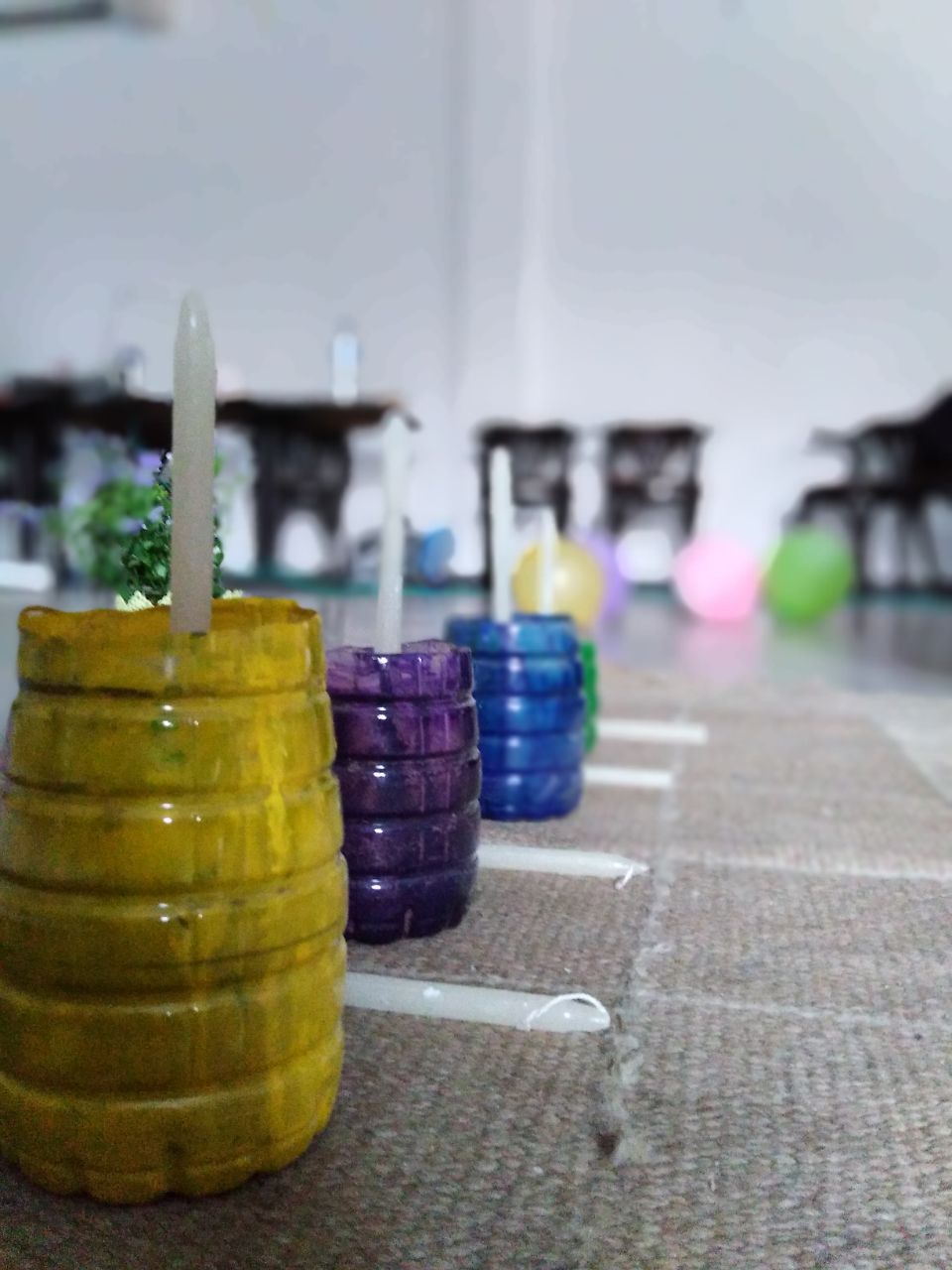
Not only did Rama gain knowledge she didn’t have before, she says she acquired life skills as well.
“I learned how to better express myself and be confident,” she says, “I also learned how to better communicate with people which enables me to pass on the knowledge I am gaining to others within my community.”
She sees the value of the community theatre performances, some of which are inspired by real stories from the community, in shedding light on important issues in an engaging and entertaining way.
Rama pledges to continue repurposing items, and wants that to be “[her] lifestyle.”
“I consider the discarded items a gift from nature to me,” she says, “so I will not let it go to waste.”


